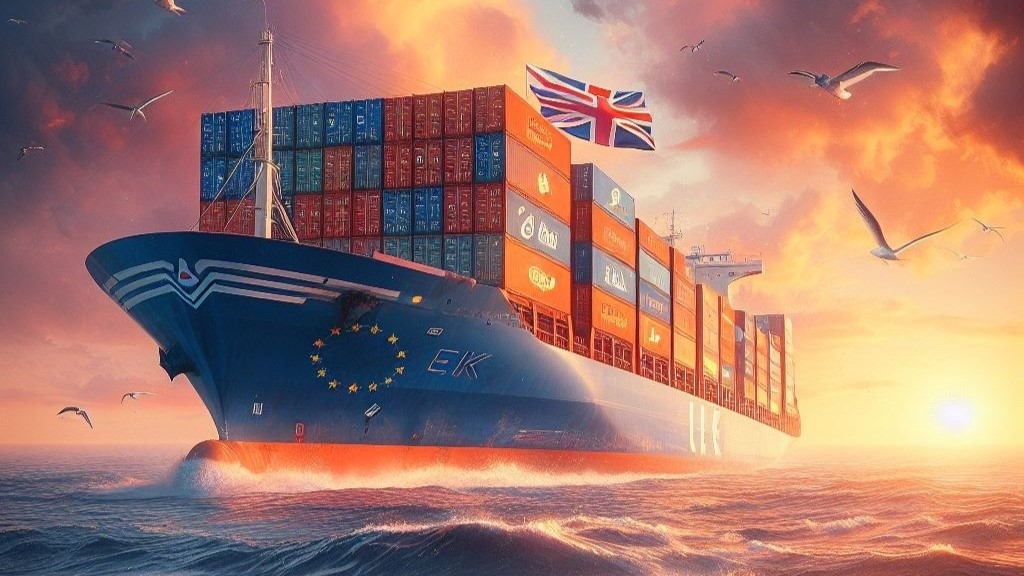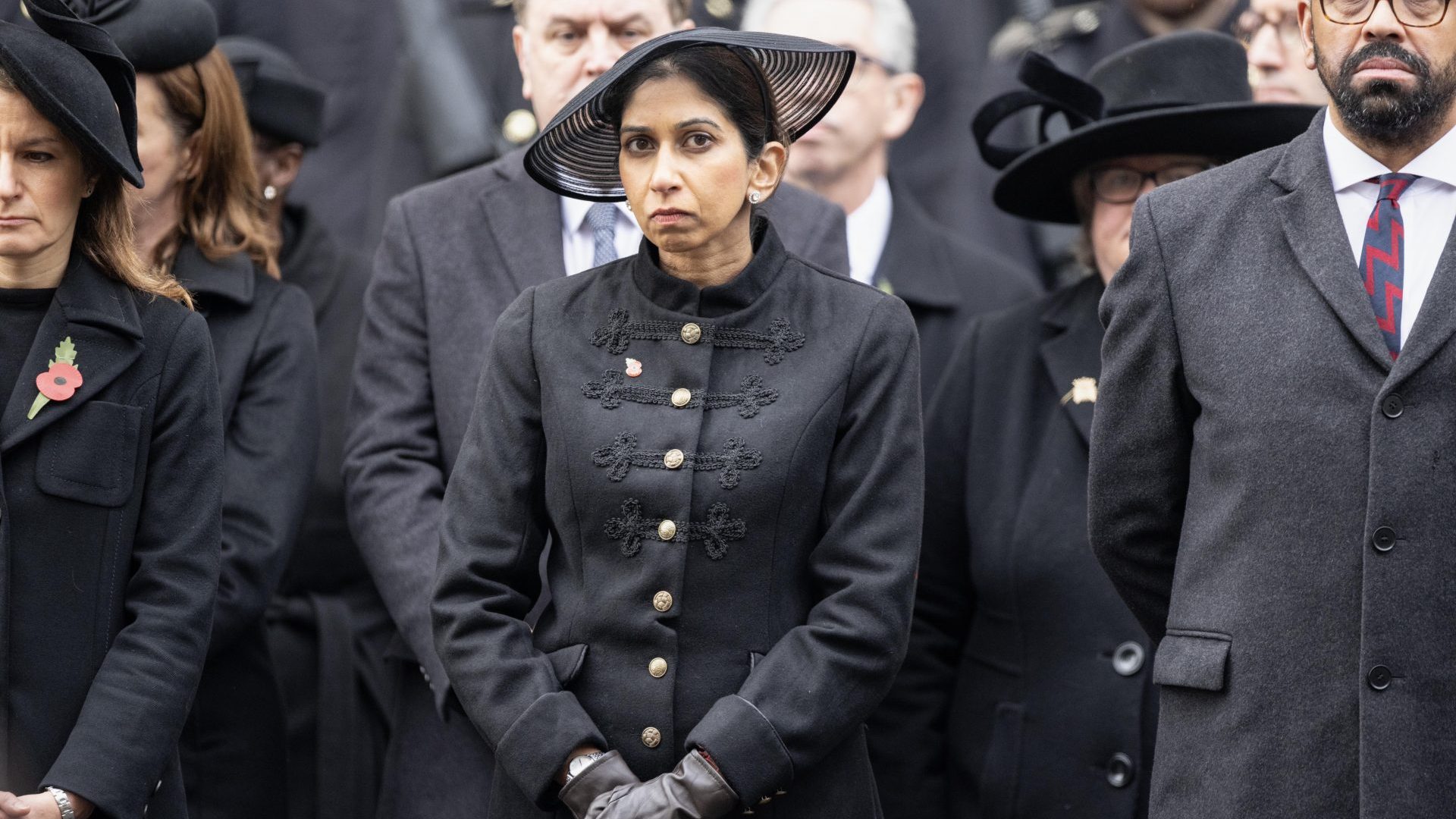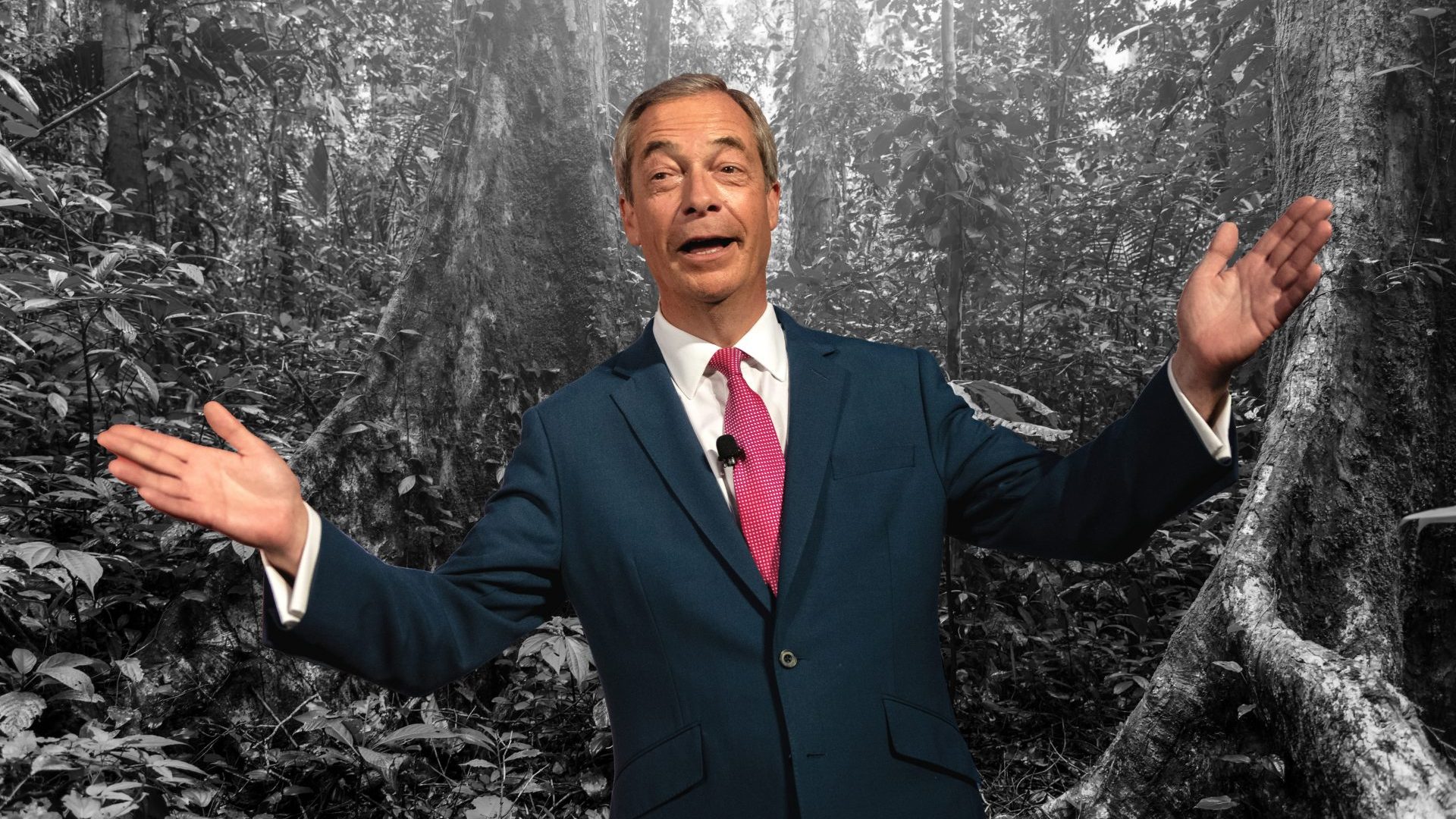It turns out that we can all relax. “OBR forecasts that Brexit would damage UK-EU trade are unfounded, says IEA”, reported the Daily Telegraph last week, while GB News’s website went with “Brexit-doomsters proved wrong! Dire UK trade predictions rubbished by new report as Eurosceptics hail Britain as ‘powerhouse of Europe’”.
The sunny report in question comes from the Institute of Economic Affairs, one of those right wing, free-market thinktanks in Tufton Street. Having provided the economic ethos behind Liz Truss’s disastrous mini-budget, the IEA is now claiming to have found that trade between the UK and the EU has not been hurt in the least by Brexit. One wonders what these geniuses will come up with next.
You might be able to guess at the quality of the IEA’s research when you see that the front page of its press release announcing the supposed good news about Brexit trade carries a mocked-up image of a massive container ship, proudly flying a union flag as it ploughs through the waves, speeding UK exports to grateful, lesser nations. Or guess its agenda from the fact that the report is subtitled “Countering the Office for Budget Responsibility’s claims”. Do these suggest deep and meaningful work?
The fact is that the IEA’s report seems to have forgotten one of the basics of trade analysis: if prices rise so does the amount of trade, in cash terms. But if you want to get an accurate image of what is really happening you have to take price rises and currency fluctuations into account. Otherwise, every time UK exporters increased their prices by 10% UK exports would miraculously increase by 10%.
The real adjusted figures show that UK exports to the EU have fallen by 7.2% between 2019 and 2022 and exports to the rest of the world are down 9.8%. Imports from the EU have risen by just 1.4% at the same time but by 7% from the rest of the world.
Picking 2019 as the base year for comparison is another huge mistake – there were obvious hits to UK trade even before the referendum let alone in the three years after. As Gerhard Schnyder in his Brexit Impact Tracker explains, the free trade-loving IEA seems to be arguing that “it is possible to erect trade barriers with your largest trading partner without that having any negative impact on trade flows and your economy! The report’s revolutionary findings could lead to rethinking decades – nay centuries! – of arguments in favour of free trade! Coming from the IEA, that is truly astonishing!”
So, contrary to what the IEA claims, there is something seriously wrong with the UK’s international trade – especially with the EU – and that the problems correspond with the arrival of Brexit, when the UK erected barriers to trade with the EU.
Not that that matters to the Brexiteer business and trade secretary, Kemi Badenoch, who pops up in the IEA’s press release to claim it proves all the Brexit critics wrong.
Thanks to her ministerial role, Badenoch has access to rooms full of trade experts, data analysts, statisticians and economists able to produce well-researched reports about what the trade figures show. She has the OBR to run an expert, independent eye over the data. But she consults none of them because they will tell her what she does not want to hear about Brexit. Otherwise Badenoch would be trumpeting their findings rather than those of one single thinktank that is widely discredited after its close involvement with the Truss disaster.
It is remarkable that our business and trade secretary is promoting a report that sets out to knock down the OBR – an independent department of the very government she serves in.
But then she and the hard Brexit right hate the OBR because it keeps publishing the truth that Brexit has damaged the British economy – and because Kwasi Kwarteng’s refusal to consult it before his mad budget was what helped spook the markets.
This is why they are desperate to rubbish its work and turn instead to the geniuses of Tufton Street – the same bunch of thinktankers that now see a few months of slightly lower borrowing as a sign that Jeremy Hunt can afford tax cuts in his autumn statement when everything from defence to education is in desperate need of more spending and when the chancellor is already committed to massive tax rises.
There is a greater danger in this trend. Ministers are increasingly refusing to believe the data that their own departments, statisticians and civil servants provide for them. Not because they can prove them wrong but because they believe in “alternative facts” that support what they want to be true.
They want to believe that Brexit is a triumph, that austerity worked, that there is room for tax cuts, that trickle-down economics works, that Singapore-on-Thames is possible, that British workers are lazy because benefits are too generous and that living in a tent is a “lifestyle choice”.
They sneer at economic orthodoxy and common sense policies, and when confronted with the truth that after nearly 14 years in charge the country has poorer growth, awful productivity, terrible trade and crumbling infrastructure, they still claim it is because they were betrayed or that their medicine was not strong enough or that the data that points their mistakes out is biased.
In fact, as UK in a Changing Europe pointed out last year after Truss was defenestrated, “Evidence suggests that growth tends to be stronger in countries with higher levels of public investment in education and human capital, where there is consistent support for research and development to spur innovation, and a long-term commitment to the modernisation of public infrastructure. Such growth models imply an active role for government in the economy, rather than one committed to spending cuts.”
But don’t bother trying to explain this to Badenoch and co. They won’t listen. And in any case, they will soon be gone.




